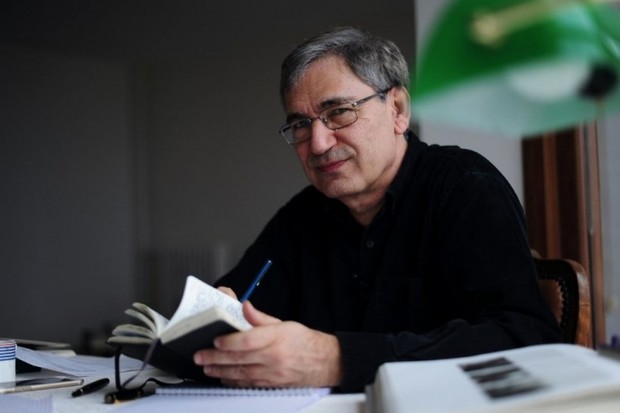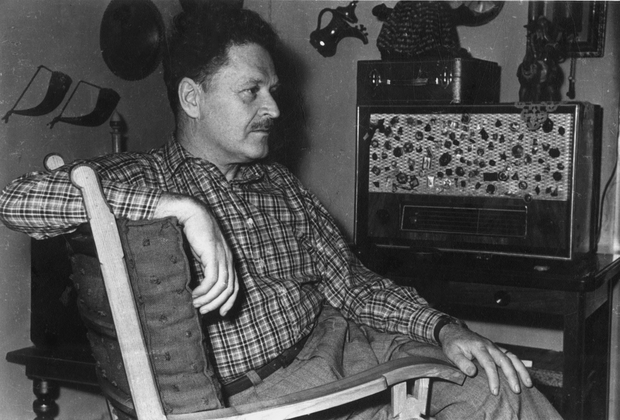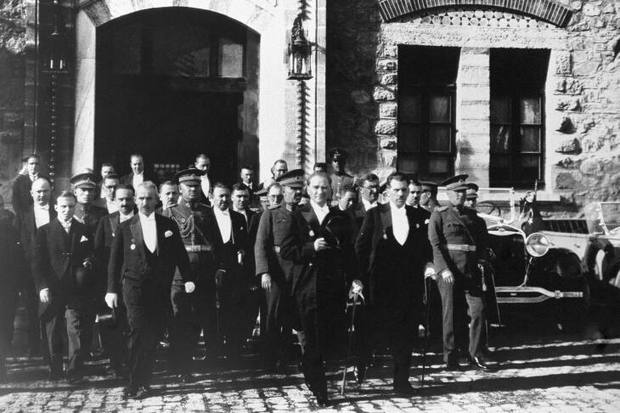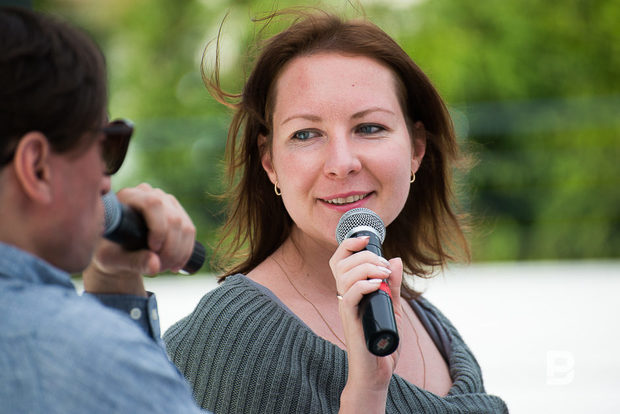Apollinariya Avrutina: ''Orhan Pamuk in Turkey is an icon''
Erdoğan’s Turkey through the eyes of the translator of the iconic writer: from the year of 1937 to a love of the neighbours to the Russian classics
A Turkologist, personal translator of Orhan Pamuk Apollinariya Avrutina gave a lecture at the summer book festical in Kazan on 11 June. The conversation was not only about literature and difficulties of translation, but also about how Turkey is living today.
''He looked at the East through the eyes of the West''
Apollinaria, if earlier the most famous Turkish writer was Nâzım Hikmet, now he is replaced by Orhan Pamuk. Are there many writers who are not known to the Russian reader?
I am very sorry that Nâzım Hikmet is forgotten, we should remember him and re-learn again. Of course, in Turkey there are many writers who might be interesting to the Russian reader.
But why is Orhan Pamuk very popular in Russia today?
Apparently, it is due to the fact that Pamuk is the first author in European literature who began to write about problems of the East. What is more, using popular and understandable for the West language. He is the first person who through the eyes of the West looked at the East and showed the East to others. Earlier, the authors, who wrote about the East, looked from their point of view, wrote things that were incomprehensible to the West. Pamuk, who has a European education, has shown the West the real East.

''Pamuk is the first author in European literature who began to write about problems of the East. What is more, using popular and understandable for the West language. He is the first person who through the eyes of the West looked at the East and showed the East to others.'' Photo: medyafaresi.com
A few seasons ago, the novel by Pamuk My Name is Red was staged in the Kamal theatre in Kazan. Despite the fact that it was done very well and the directing was very good, the performance very soon was removed from the repertoire. It turned out that it is very difficult to translate the novel by Pamuk into the language of the theatre. Are there interesting stagings of his novels in the world?
In Russia, of course, no, in Turkey — also no. Pamuk is an opponent of stagings and films based on his writings, he does not like, refuses such projects. He believes that it is an attack on the imagination of the reader. But in this area there are constantly some attempts to make a film, something was staged in Germany. This tendency has not received a wide development because Pamuk himself does not support such projects.
Is Pamuk popular in the homeland as well as in the world?
In the homeland he is just a national treasure. He is an icon. They have a very ambiguous attitude to him. On the one hand, they do not like him for all sorts of political affairs, perceive him with suspicion. But on the other hand, when he appears where there is a large gathering of people, and here begins…
After all, who is the main writer in Turkey today — Nâzım Hikmet or Orhan Pamuk?
Orhan Pamuk, of course. The readers of Nâzım Hikmet are the older generation. Although in modern Turkey among people far from traditional Islam Nâzım Hikmet is very popular.

''The readers of Nâzım Hikmet are the older generation. Although in modern Turkey among people far from traditional Islam Nâzım Hikmet is very popular.'' Photo: sosyalbilgiler.biz
''Mass purges are typical for Turkey''
What do the Turkish intellectuals think about the strengthening of Erdoğan's power?
They have a very difficult attitude. As the intelligentsia usually do to such situations. People want to live in the homeland. There are those who fight against the power of Erdoğan, there are those that do not react. But there are people like Orhan Pamuk who do their job. Life goes on, rulers come and go.
But there is a difficult situation, for example, with Gülen, don't they have a feeling like it was in Russia — 1937 is coming?
Of course, they do. Our press have written about mass purges. But this process, I think, is not new to the Turkish society. In Turkey in the last century there have been many revolutions, and after each revolution there was a wave of purges. This is a serious problem among poets and writers. Among the generation of fifty or sixty-year age and older, it's hard to find people who would not be in prison. Everyone did. Someone for five years, someone for ten.

'' The modern society is, of course, departing from the precepts of Atatürk, they do it because they want it. The Atatürk's precepts were artificial imposition of the Istanbul intelligentsia, which remained faithful to the traditional classical Islam and retains up to this day.'' Photo: haberler.com
By political articles?
Yes, of course. In the eighties, there were many people who was in jail. Probably, among writers and poets who came out of prison, they are 90%. What is happening now is not new. This is typical of the recent history of Turkey.
When I am in Turkey, everywhere I hear about Atatürk. Is he still popular, or it is being maintained artificially?
It is difficult to say if he's popular now, but the modern society is, of course, departing from the precepts of Atatürk, they do it because they want it. The Atatürk's precepts were artificial imposition of the Istanbul intelligentsia, which remained faithful to the traditional classical Islam and retains up to this day.
''Many cultural events have been cancelled''
How did the Turkish intellectuals react to last year's conflict between Russia and Turkey?
They reacted badly. Turkish intellectuals were also affected because a huge number of different cultural events were cancelled. Pamuk, for example, came a year later than it was supposed. They all treated it negatively because the two peoples were so close, were like brithers. And what, to take them and just break? And how many Russian-Turkish marriages are there? Thousands of them.
How do the Turkish intelligentsia perceive what is happening in Russia?
Usually ironically. Intellectuals tend to live their lives, they continue to live as they lived.

Is it true that in the south-west of Turkey there is a war?
Not so much in the south-west as in Syria. There is a flow of refugees, it is being seen everywhere, in Istanbul, where everything has changed, one does not feel very comfortable because of this. There are a lot of refugees on the islands, in Ankara. Turkey has changed a lot for those four years. This is not the same Turkey as it used to be. But I think when the war in Turkey ends, everything will return to normal.